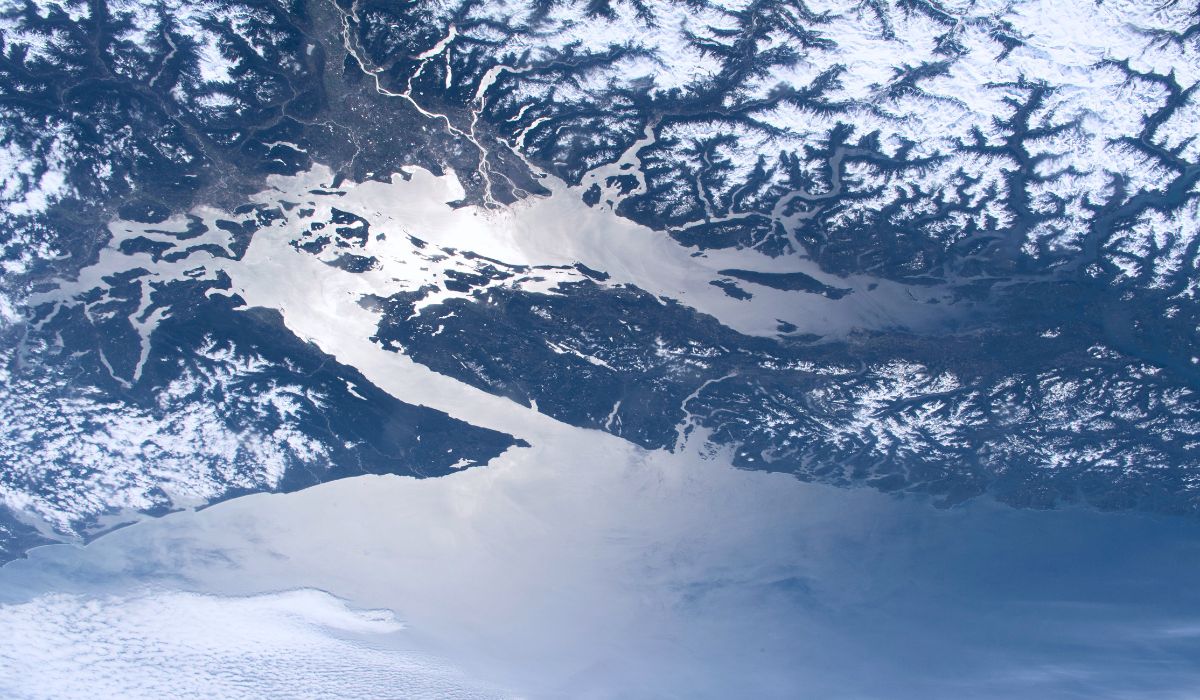
Every year, Canada Day offers a compelling and instructive period of reflection. As a conservation organization that has committed to the pathway of environmental justice and the hard and necessary work this entails, we are grappling with what a holiday like today means.
We are on the heels of National Indigenous Peoples day. I think that’s fitting, as Canada has always come second. So let’s treat this July 1st as a continuation of June 21st—a reminder that the work is never done, and that all struggles for justice are connected.
At GSA, our focus is on the Salish Sea, and protecting these waters from an extractive mindset that sees life as a resource to be exploited, or as a casualty to the economy. The Fraser River estuary, which springs from the Fraser Pass 1,375 km away near the Alberta border, flows all the way into the Salish Sea, creating one of the most incredible biodiversity hotspots on Turtle Island. It is an integral part of the Pacific Flyway, one of the biggest migratory journeys for our winged friends in the world, starting in Chile and ending in Alaska.
It is a major habitat for the Western Sandpiper, and one of the largest sockeye salmon runs in the world. The health of this estuary is essential to the wellbeing of juvenile salmon making their brave way into salt water, and by extension, is essential to the southern residents, who are struggling to survive a painful and highly visible extinction we can see in real time.
And yet, the RBT2 expansion project has received federal approval, despite several environmental reviews recommending great caution. GSA, along with a coalition of organizations represented by Ecojustice, took this issue to court, arguing that approval of this megaport is unlawful, as the project cannot be deemed justified under environmental assessment legislation when it contradicts another statute—the Species at Risk Act.
The Southern Resident Killer Whales (SRKW) that so many people and organizations like GSA are fighting so hard to protect are victims of this extractivist way of thinking. There are only 74 of these orcas alive today, yet the new 2024 management measures are still extremely inadequate and fail to provide the support this critically endangered species needs—especially with mega projects like RBT2, increased marine shipping, and LNG expansion worsening the status quo that these measures are predicated on. Sadly, these measures are nothing short of a managed extinction plan for these orcas.

All water flows eventually into the ocean, and we can see parallels with pipelines flowing from Alberta to the West Coast, traveling through unceded Indigenous lands, like the Yintah and Widzin Kwah in Wet’suwet’en territories. TMX has opened up to the sea, and ships are now in the water, despite an emergency order petition we have sent the Federal government. Marine shipping, a massive contributing factor to the looming SRKW extinction, is increasing by astronomical rates already, and will continue to increase with the path we are currently on.
Canada, as a nation founded on resource extraction that is occupying the lands and waters of so many Nations, Peoples (both human and other than human), and cultures through time and space, needs to take a look at itself in the mirror and start putting honour behind their stance on reconciliation. Steps like Bill C-226, a new law aimed at reducing environmental racism, are important along this journey, and are exciting to see, but ultimately are just a part of this journey we must all take.
There are so many individuals, organizations, Nations, and people like you who are reading this, that are working towards a better future for all living beings. So many people continue to work towards environmental and Indigenous justice, safeguarding biodiversity, building better and more meaningful relationships with our neighbours, becoming better allies and accomplices in the struggles of our time, and unlearning the oppressive systems that were put in place over hundreds of years while also collectively creating more just futures.
A big part of the future of GSA is embedded in this work, and we are doing our best to lean into these liberatory desires.
We see this work as an antidote to the multiple interrelated crises of the present, as a way to orient ourselves to a more just and caring pathway that is fostering community power and relationship building, connecting people to place, and, ultimately, striving towards the deep transformation of unjust systems through a collaborative, environmental justice based approach.
This is not easy work, but we share this part of our journey as a way to rethink our approach to this holiday, and to name the inherent tensions of trying to do good in this world when it can sometimes be difficult to do so.
This July 1st, let us meditate on the untold, the invisibilized, and the ongoing stories of injustice that have got us to this very moment. Let us reflect, honour, and learn from the incredible resiliency and leadership of Indigenous peoples and cultures.
And let us walk a new path, in good ways, towards a justice that demands freedom for everyone, because, as Fannie Lou Hamer said, “nobody’s free until everybody’s free”.
Images | Top: AI-generated mashup. Middle: The Strait of Juan de Fuca and the Salish Sea, pictured from the International Space Station, separate the western-most border of the United States and Canada, NASA images.
